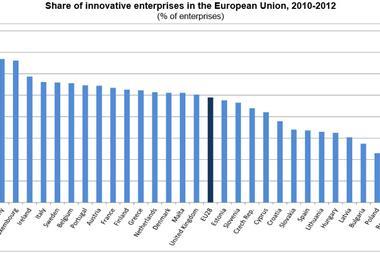BHS lacked an online strategy and was selling out-of-date products, while Austin Reed struggled to attract younger customers

The UK lost two major high-street retailers in the space of two days when BHS and Austin Reed went into administration at the end of April.
BHS had run out of cash to meet all its contractual payments, but a failure to innovate lies at the heart of why the company has been loss-making for the last seven years.
The retailer’s market share of clothing shoppers visiting its stores dropped from 13.4% in 2000 to 8.2% last year. While the UK online retail sector grew by 16.2% in 2015, BHS failed to have an online strategy, and the products it was selling were often old-fashioned.
A failure to innovate also led to the insolvency of Austin Reed, which suffered years of falling sales as it failed to attract younger shoppers.
BHS and Austin Reed are the latest casualties in a struggling retail market and their demise demonstrates the importance of innovation.
However, many big companies struggle to drive innovation in-house. For them, outsourcing innovation could be a solution, whereby companies use both external and internal ideas to drive innovation.
“In the age of big bang disruption, inward-looking growth strategies can be risky. It comes as no surprise then, that there are a large number of companies turning to partnership with small high-tech firms to ensure faster and more effective innovation,” Accenture said in a recent report on open innovation.
“By directly engaging with outsiders – consumers, suppliers, universities and even competitors - large companies have been able to develop highly efficient innovation processes and differentiated products.”




















No comments yet